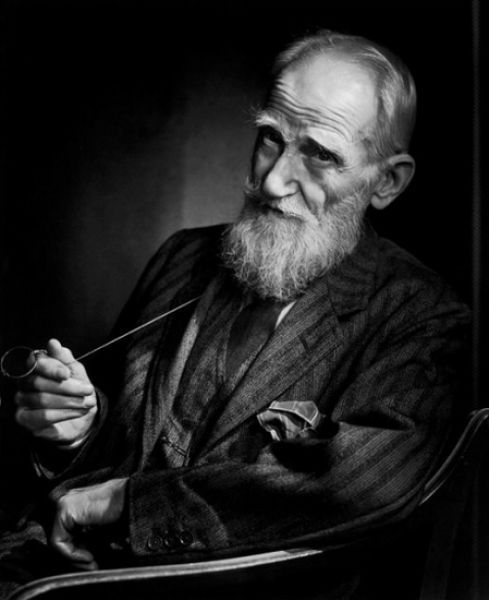
George Bernard Shaw
George Bernard Shaw (July 26, 1856 - November 2, 1950), known at his insistence simply as Bernard Shaw, was an Irish playwright, critic, and polemicist, whose influence on Western theater, culture, and politics spread from the 1880s until his death and further. He wrote more than sixty plays, including such major ones as “Man and Superman” (1902), “Pygmalion” (1912), and “Saint Joan” (1923). With a series including both modern satire and historical allegory, Shaw became the leading playwright of his generation, and in 1925 he was awarded the Nobel Prize in literature. Born in Dublin, Shaw moved to London in 1876, where he struggled to establish himself as a writer and novelist, and began a rigorous process of self-education. By the mid-1880s, he became a respected theater and music critic. After a political awakening, he joined the Fabian Society of Poets and became his most outstanding pamphlet. The show wrote plays years before its first public success, Arms and Man, in 1894. Under the influence of Henrik Ibsen, he sought to bring new realism into the English drama, using his plays as a means of disseminating his political, social, and political life. religious ideas. By the beginning of the twentieth century, his reputation as a playwright was secured by a series of critical and popular successes, including Major Barbara, The Doctor's Dilemma, Caesar and Cleopatra. Shaw's expressed gaze was often controversial; he supported eugenics and alphabet reform, opposed vaccination, and organized religion. He pursued unpopularity, condemning both sides of the First World War as equally guilty, and, although not republican, criticized British post-war policy towards Ireland. These positions did not have a lasting effect on his position or performance as a playwright; In the interwar years, there was a series of often ambitious plays that achieved varying degrees of popular success. In 1938, he provided the script for the filmed version of Pygmalion, for which he received an Oscar. His appetite for politics and controversy remained unchanged; By the end of the 1920s, he had largely abandoned Fabian gradualism and often wrote and favored the dictatorships of the right and left - he admired both Mussolini and Stalin. In the last decade of his life, he made fewer public statements but continued to write a lot until, shortly before his death, at the age of 94, he refused all-state awards, including the Order of Merit in 1946. After Shaw's death, scientific and critical opinions changed in his work, but he was regularly rated as second only to William Shakespeare among English-language playwrights; Analysts acknowledge its widespread influence on generations of playwrights. The word "Shavian" entered the language as the embodiment of Shaw's ideas and his means of expression.
